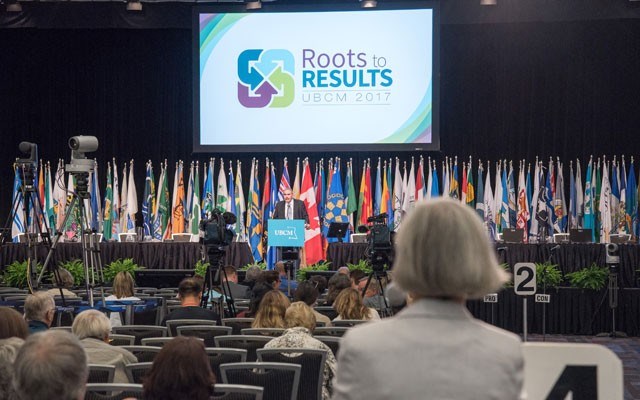The annual gathering of municipal politicians is taking place this week in Vancouver, and Resort Municipality of Whistler (RMOW) leaders and staff are busy making their cases for provincial government support on a number of fronts.
This is the first time in 16 years that local governments have been able to put wish lists before an NDP government at the annual Union of BC Municipalities conference (UBCM), and it's unclear at this point if the change in provincial leadership will make much of a difference.
Political leaders in Whistler met ahead of the conference with Green Party leader Andrew Weaver, as well as ministers of transportation and tourism. A further meeting involving Whistler and other B.C. resorts was also held in conjunction with the UBCM to discuss amongst other things the fate of the Resort Municipality Initiative (RMI) funding
For years, the long-term fate of the RMI funds have been hanging in the balance — despite the fact that Whistler returns the investment it gets (about $6.7 million annually) in the first 14 days of each year to all levels of government.
The Liberal government had previously said that the RMI funding would stay in place for the resorts (Fernie, Golden, Harrison Hot Springs, Invermere, Kimberley, Osoyoos, Radium Hot Springs, Revelstoke, Rossland, Sun Peaks, Tofino, Ucluelet, Valemount and Whistler) until March 2018.
The RMI money is used to fund myriad events and infrastructure — from the new wayfinding signage to the Festivals Events and Animation program (FE&A) — it is foundational to the huge success the resort has experienced since 2011.
Early indications are that the new NDP minister responsible for RMI looks on the funding favourably.
In all there are over 140 resolutions that municipalities are putting forward at the UBCM from banning train whistles (Vanderhoof) to moving Family Day a week earlier (Quesnel).
But there is little doubt one of the hot button topics is how municipalities are to deal with the changes around the legalization of cannabis next July. For months municipal leaders have been speaking out about the lack of consultation on what this might look like on the front lines, and searching for answers about who is going to be responsible for managing the changes on the ground — the domino effect on everything from driving-while-impaired charges to age of consent to whether bars will be allowed to have weed smoking lounges.
All three levels of government in Canada will have a role to play in regulating this new industry, which Deloitte last year estimated to be worth $22 billion.
This week, the new NDP government announced and launched a consultation process due to wrap up Nov. 1 at http://engage.gov.bc.ca/BCcannabisregulation.
The federal government is responsible for regulating marijuana production, while provincial governments will be responsible for distribution and retail, and municipal governments for zoning and business bylaws.
So far, the new NDP government has not decided whether marijuana will be sold through private specialized pot shops, or government regulated liquor stores — just two of a host of options.
Earlier this year, UBCM launched a survey for its members to capture the frustration municipalities were having about having their say in how legalization was going to affect them.
No one at the RMOW could say if Whistler had taken part in the survey — but 56 municipalities did and of those only 7.2 per cent said they had been contacted by the federal or provincial government.
"When asked to indicate their three primary concerns regarding a legalized marijuana regime, 78.9 per cent of respondents selected 'downloading of duties onto local governments' as a concern," said a UBCM analysis of the survey, which was done between March 29 and April 28.
"Many respondents were also concerned with the potential distribution of revenue, and the necessity for local governments to receive a share, especially if they are to assume new responsibilities."
The news that the new NDP government was reaching out for input on cannabis legalization is good news for the province and for Whistler — let's hope the province keeps listening to its local-government partners.




